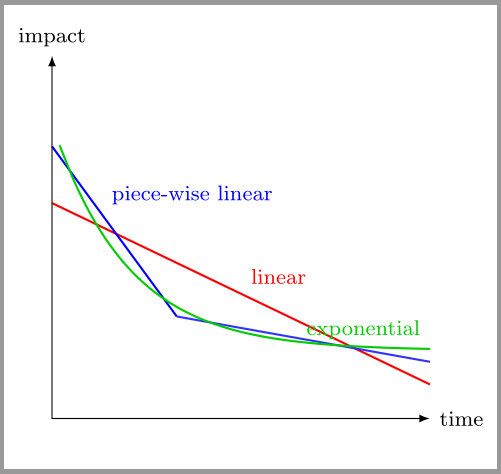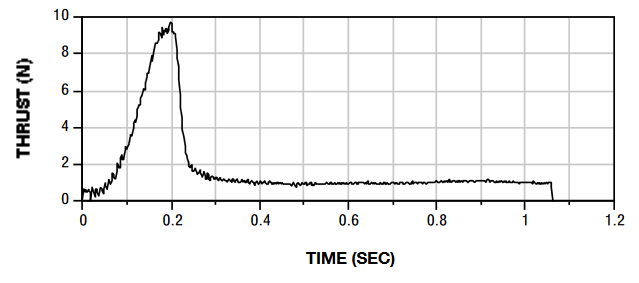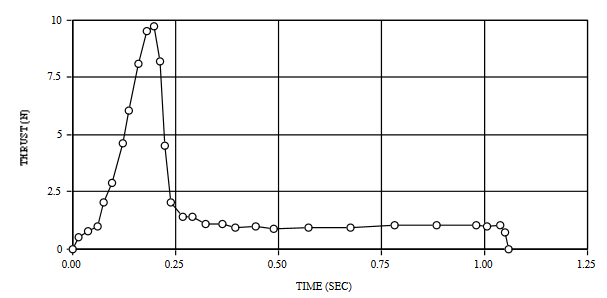When the impact of laws diminish over time, it may dissipate by "linear", "piecewise linear" or "exponential way".
It is easy to understand that linear mean that the the erosion of the laws impact follows a constant slope coefficient. And exponential way is that the erosion of laws effect would follow a curve.
But I do not fully understand what does "piecewise linear" mean intuitively? Is it the mixture between "linear" and "exponential" ? Could you please explain it to me, thanks in advance.


